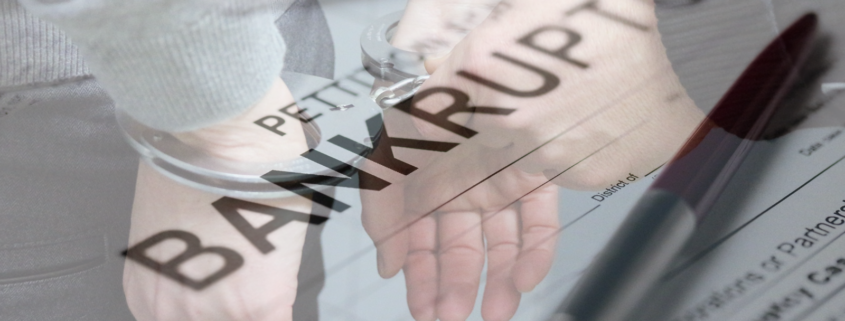Can Criminal Fines Be Discharged in Bankruptcy?
If you have a criminal past that has led to a pile of unpaid court fines and penalties, you may not know where to start. The longer these debts go unpaid, the more fees they accumulate, and the harder it is to ever get control of them. Bankruptcy may or may not be the solution you are looking for—whether or not your debts can be discharged depends on a variety of factors, including the reason for the initial fee or penalty, the type of fee, and whom you owe it to.
Considering bankruptcy as a way to get ahead of your growing court fees and fines? Let’s talk about your options and figure out if it’s a viable choice for you. Call Padgett & Robertson at 251-336-3695 to set up a free consultation right away.
Understand the Breakdown of Your Debt
First, you should have a general understanding of the breakdown of your total debt before deciding whether or not to file. For example, if court fees and fines make up 90% of your total debt, you’ll definitely need more information from a bankruptcy attorney before you decide whether or not to move forward.
If it turns out that almost all of your fees are non-dischargeable, you may find that bankruptcy won’t do very much for you. On the other hand, if criminal fines are just a small part of a sizable debt load, the answer to this question will just determine how much bankruptcy will help you.
Know What Types of Fees and Fines You Have
In general, fines from criminal cases are not dischargeable in bankruptcy. But if you’re using the term “criminal fines” as a broad term that refers to all court-related expenses, the answer may be more complicated.
If you’ve incurred fines that you were charged as punishment, those types of debts are not dischargeable. This includes, for example, restitution you have been ordered to pay to victims of a crime. It also includes traffic tickets. Essentially, any fines or restitution that are part of your criminal sentencing cannot be discharged.
Some Court Fees May Be Dischargeable
There are some fines and fees that are discharged in bankruptcy. If your fines are owed to a government agency or someone acting on behalf of a government agency, they may be dischargeable. If you owe money to a bondsman, that debt may also be discharged in bankruptcy. However, if someone else took on that debt for you, they will still be held responsible for it.
It’s also important to remember the very significant differences between civil and criminal actions when you’re considering your options. While penalties for criminal activity may not be discharged in bankruptcy, fees and penalties from civil suits are usually dischargeable.
Even if your debt cannot be completely discharged in Chapter 7 bankruptcy, you may be able to restructure them with Chapter 13 bankruptcy. While this does not get rid of the debt, it can help you pay it off in a more reasonable timeframe.
The differences between dischargeable and non-dischargeable fines and penalties are small enough that it makes sense to talk to an attorney. Even a slight misunderstanding about whether or not a debt is dischargeable could completely change your plans regarding bankruptcy.
Your Next Step: Talk to an Attorney
The nuances of bankruptcy can make it very overwhelming for someone who’s already stressed out over their mounting debt. That’s why it’s recommended that you talk to a bankruptcy attorney early.
Your attorney can take an in-depth look at your finances, explain whether or not you qualify for bankruptcy, and help you understand which debts will and will not be discharged if your bankruptcy is granted. With that information, you can make an informed choice that best prepares you for a better financial future.
Find Out How Padgett & Robertson Can Help You
If you’re ready to learn more about bankruptcy and find out if it is right for you, let’s sit down and talk. We know that there’s a lot to think about when it comes to the future of your finances, and we want to make sure you have the information you need. Call us at 251-336-3695 or send us a message to set up a free consultation.




Leave a Reply
Want to join the discussion?Feel free to contribute!